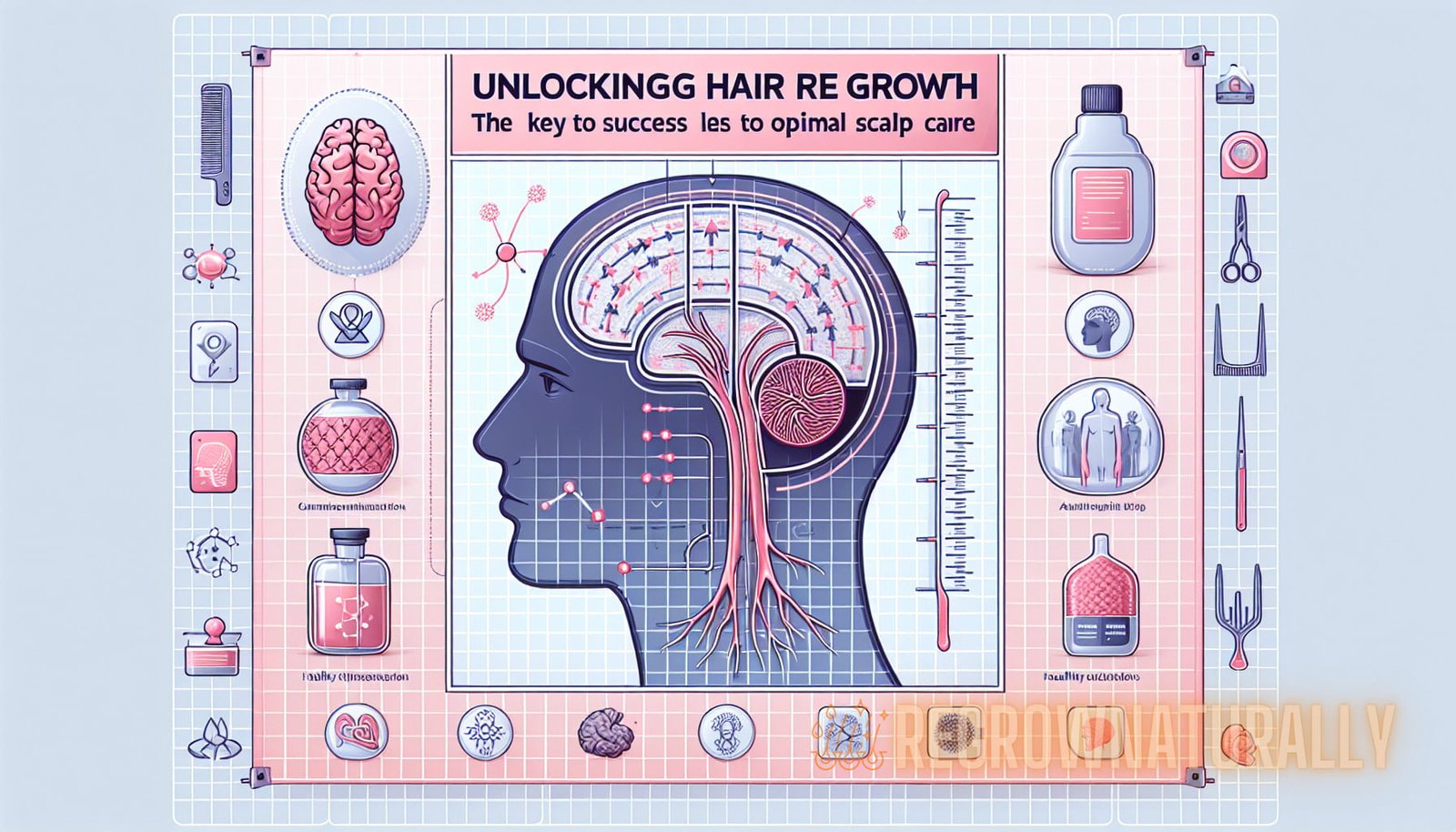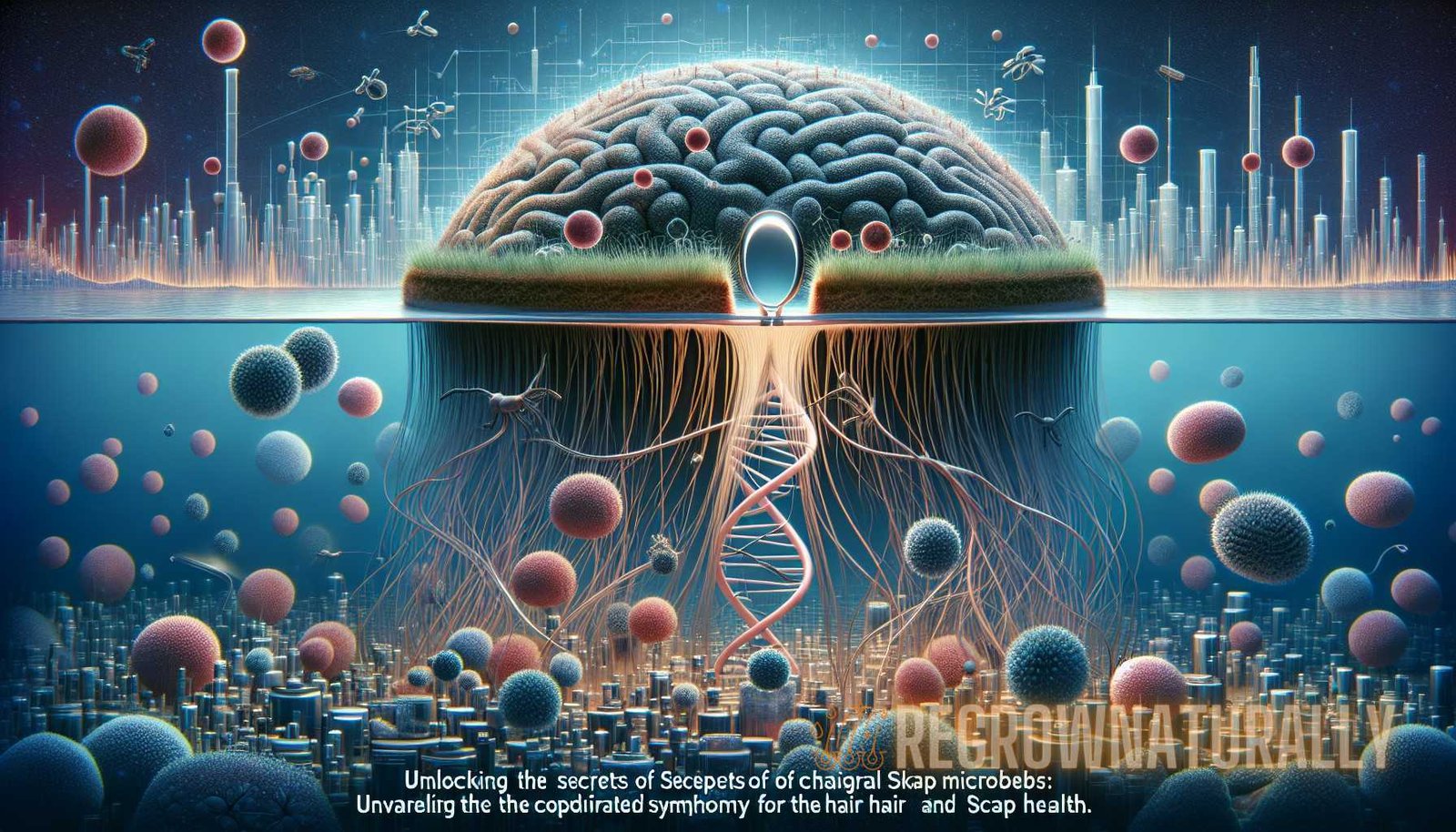Introduction
Maintaining a Healthy Scalp: The Foundation of Hair Regrowth
A healthy scalp is the cornerstone of strong, vibrant hair. Yet, many people neglect the health of their scalps, focusing solely on the appearance of their hair. But the truth is, without a healthy scalp, it is nearly impossible to achieve optimal hair growth. This article will delve into the importance of scalp health, discuss common scalp conditions, and provide practical tips on how to maintain a healthy scalp for hair regrowth.
The Science of the Scalp
Understanding the structure and function of the scalp is essential for maintaining its health. The scalp is composed of layers of skin, blood vessels, and hair follicles. The hair follicles are responsible for hair growth, while the blood vessels supply the hair follicles with nutrients and oxygen. The scalp also contains sebaceous glands that produce sebum, a natural oil that moisturizes the hair and scalp.
The health of the scalp is directly linked to the overall health of the body. Nutritional deficiencies, hormonal imbalances, and certain medical conditions can all affect scalp health and subsequently impact hair growth. Therefore, it is crucial to address any underlying health issues to maintain a healthy scalp.
Common Scalp Conditions
Several scalp conditions can affect the health of your scalp and disrupt hair growth. Let’s explore some of the most common ones:
- Dandruff: Dandruff is a common scalp condition characterized by flaky, itchy skin. It is often caused by an overgrowth of a yeast-like fungus called Malassezia. Dandruff can be managed by using anti-dandruff shampoos containing active ingredients like zinc pyrithione or ketoconazole.
- Seborrheic Dermatitis: Seborrheic dermatitis is a chronic inflammatory condition that affects the sebaceous glands. It leads to red, scaly patches on the scalp and can cause itching and hair loss. Anti-fungal shampoos, topical corticosteroids, or medicated creams can help manage the symptoms of seborrheic dermatitis.
- Alopecia Areata: Alopecia areata is an autoimmune condition that causes patchy hair loss on the scalp. It occurs when the immune system mistakenly attacks the hair follicles. Treatment options for alopecia areata may include topical medications, oral medications, or injections of corticosteroids directly into the affected areas.
- Psoriasis: Psoriasis is a chronic autoimmune condition that causes the rapid buildup of skin cells, leading to thick, silvery scales. When psoriasis affects the scalp, it can cause red, scaly patches and temporary hair loss. Topical treatments, phototherapy, and systemic medications are commonly used to manage scalp psoriasis.
Tips for Maintaining a Healthy Scalp
Now that we understand the importance of a healthy scalp and the common scalp conditions that can hinder hair regrowth, let’s explore some practical tips for maintaining a healthy scalp:
1. Cleanse Regularly: Regular cleansing of the scalp is crucial for removing dirt, excess oil, and product buildup. Use a gentle, sulfate-free shampoo and ensure thorough rinsing to prevent scalp irritation.
2. Avoid Harsh Hair Products: Harsh hair products containing sulfates, alcohol, and synthetic fragrances can strip the scalp of its natural oils and cause dryness and irritation. Opt for hair products that are formulated with natural, nourishing ingredients instead.
3. Massage the Scalp: Massaging the scalp stimulates blood circulation, which promotes hair growth. Use your fingertips to gently massage the scalp in circular motions for a few minutes each day.
4. Protect from Sun Damage: The scalp is often overlooked when it comes to sun protection. However, prolonged exposure to the sun’s harmful UV rays can damage the scalp and lead to dryness and sunburn. Wear a hat or use a sunscreen specifically formulated for the scalp when spending time outdoors.
5. Maintain a Healthy Diet: Good nutrition is vital for scalp health and hair growth. Include foods rich in vitamins A, C, E, and B vitamins, as well as minerals like iron and zinc, in your diet. These nutrients support the health and function of the scalp and hair follicles.
6. Hydrate and Moisturize: Just like the rest of your body, your scalp needs hydration and moisture. Drink an adequate amount of water daily to keep your scalp and hair hydrated from the inside out. Additionally, use a moisturizing conditioner or scalp oil to nourish and hydrate the scalp externally.
7. Avoid Excessive Heat Styling: Excessive heat from styling tools can damage the hair shaft and potentially harm the scalp. Limit the use of heat styling tools and always use a heat protectant spray before styling to minimize damage.
8. Practice Stress Management: Chronic stress can contribute to a variety of scalp conditions and hair loss. Implement stress management techniques like meditation, yoga, or regular exercise to promote scalp health and overall well-being.
Conclusion
Maintaining a healthy scalp is essential for achieving optimal hair growth. By understanding the science of the scalp, identifying common scalp conditions, and implementing practical tips for scalp health maintenance, you can ensure that your scalp provides the foundation for strong, vibrant hair. Remember, a healthy scalp goes hand in hand with a healthy body, so prioritize your overall well-being to support scalp health and hair regrowth.
Additional Readings:- Scalp – Wikipedia
- Effective Haircare Routine for a Healthy Scalp



